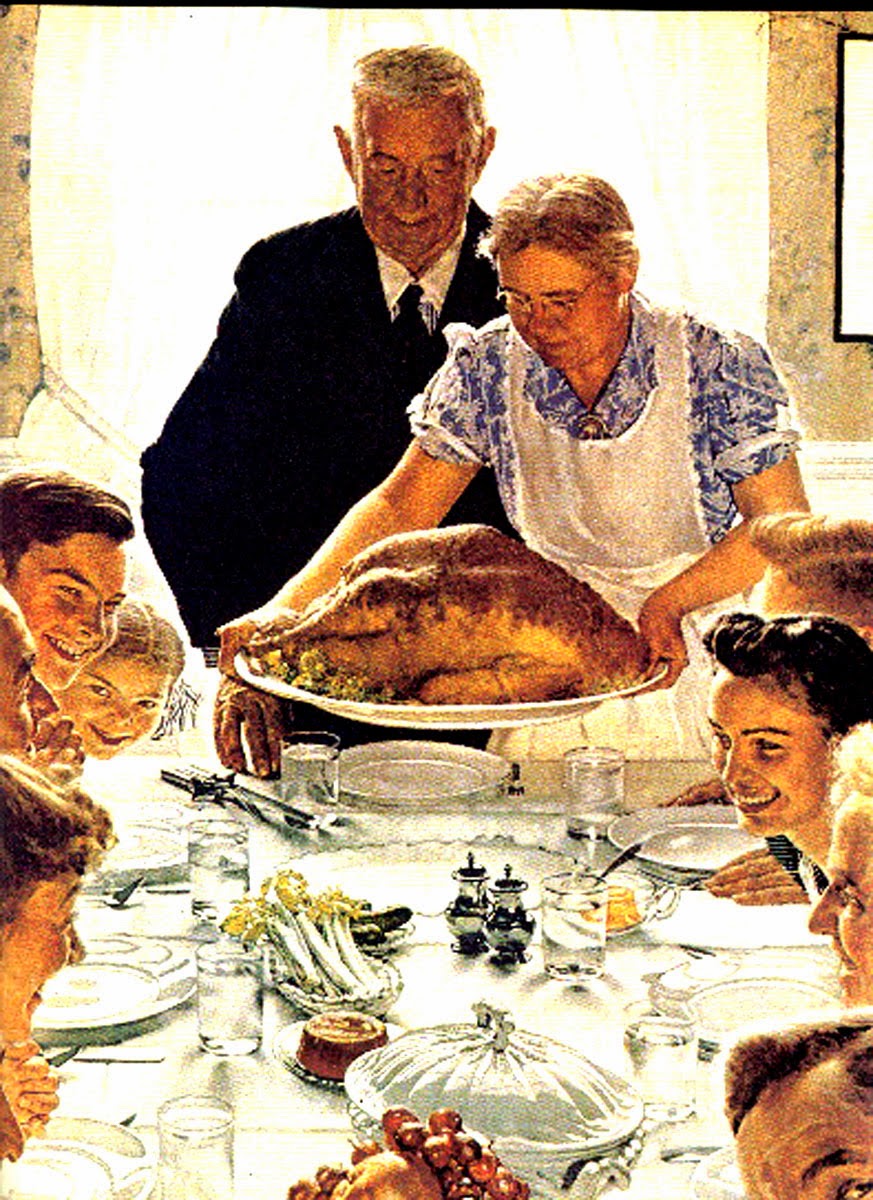
Thanksgiving is here again and even in the fractured culture of our time, many families still come together to eat, play, watch sports, reminisce a bit and give thanks. But to whom are we giving thanks? To mom and dad? To friends who have stood by and supported us? Perhaps. It's good to be grateful to those who we love and love us and have helped us in our lives. But Thanksgiving Day has always been about a higher gratitude. Giving thanks to G od for his blessings.
The Pilgrims, who celebrated the first thanksgiving in America, were fleeing religious persecution in their native England. The first winter in Plymouth was rough and most of the pilgrims who came across died in that brutal harsh winter. Only 50 out of the 110 who landed in the New World survived. Friendly Indians eventually helped the settlers adapt to their new surroundings and thanks to them the pilgrims learned how to properly plant and harvest crops.
The following fall things got much better, they found themselves with enough food to put away for the winter. There was corn, fruits and vegetables, fish to be packed in salt, and meat to be cured over smoky fires. They had a lot to be thankful for and they celebrated their blessings with the neighboring Indians. This lasted for three days. The Pilgrims certainly were thankful to their Indian friends, but it didn't end there. They praised G od for a successful harvest and for all the blessings they were given.
But the following year the harvest was not as bountiful, as they were still unused to growing the corn. During the year they had also shared their stored food with newcomers and the Pilgrims ran short of food. And by the 3rd year they had a spring and summer that was hot and dry with the crops dying in the fields.
The Pilgrim Governor William Bradford ordered a day of fasting and prayer, and it was soon thereafter that the rain came. To celebrate — November 29th of that year was proclaimed a day of thanksgiving. This date is believed to be the real true beginning of the present day Thanksgiving Day.
On October 3, 1863, President Lincoln issued a proclamation designating 'the last Thursday of November as a day of Thanksgiving.' It read in part, 'The year that is drawing towards its close, has been filled with the blessings of fruitful fields and healthful skies. To these bounties, which are so constantly enjoyed that we are prone to forget the source from which they come, others have been added, which are of so extraordinary a nature, that they cannot fail to penetrate and soften even the heart which is habitually insensible to the ever watchful providence of Almighty G od.'
I do therefore invite my fellow citizens in every part of the United States, and also those who are at sea and those who are sojourning in foreign lands, to set apart and observe the last Thursday of November next, as a day of Thanksgiving and Praise to our beneficent Father who dwelleth in the Heavens.'
157 years later President Trump issued his last Thanksgiving proclamation. It began, 'On Thanksgiving Day, we thank G od for the abundant blessings in our lives.
As we gather with family and friends to celebrate this season of generosity, hope, and gratitude, we commemorate America's founding traditions of faith, family, and friendship, and give thanks for the principles of freedom, liberty, and democracy that make our country exceptional in the history of the world.'
Most Americans today have unfortunately lost religion in their lives and it shows in our society. Thanksgivings come and go, people gather to eat, watch football and too many of us never consider thanking G od for the blessings in our lives.
We live in uncertain and dangerous times. With everything we have witnessed recently, from the Jewish slaughter in Israel to the antisemitism in our own streets and on campuses at home, there has never been a more appropriate time to connect with G od. Prayer is so important in so many ways. My hope is that more of us will give thanks to G od this Thanksgiving and keep praying all year through.
It will only make America stronger.
(COMMENT, BELOW)
